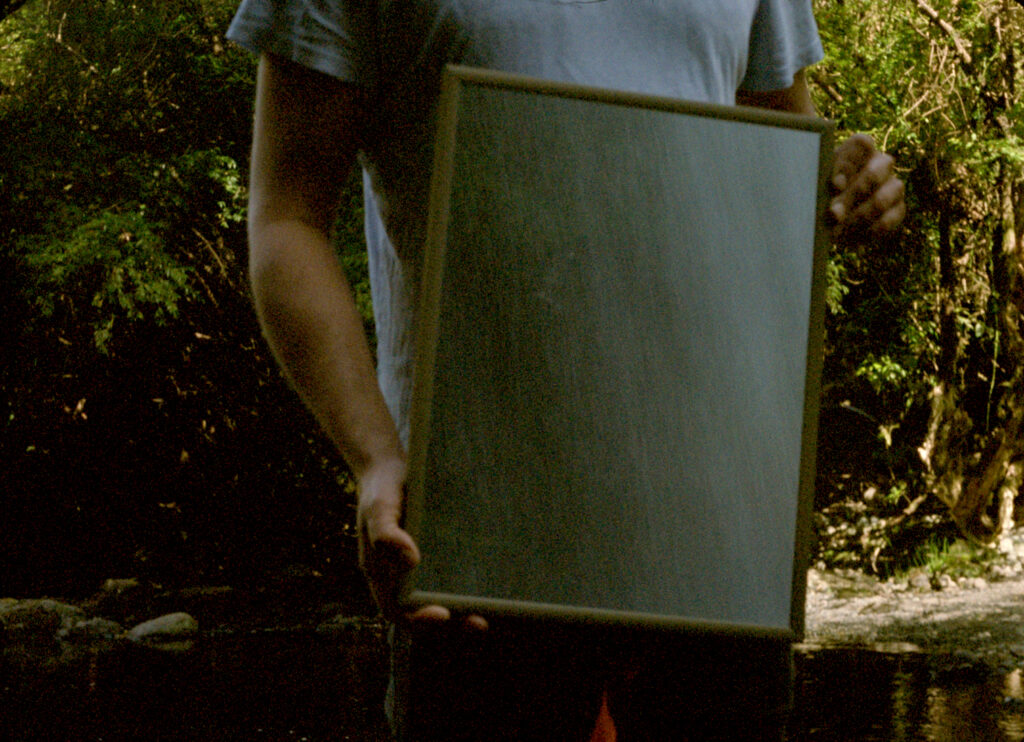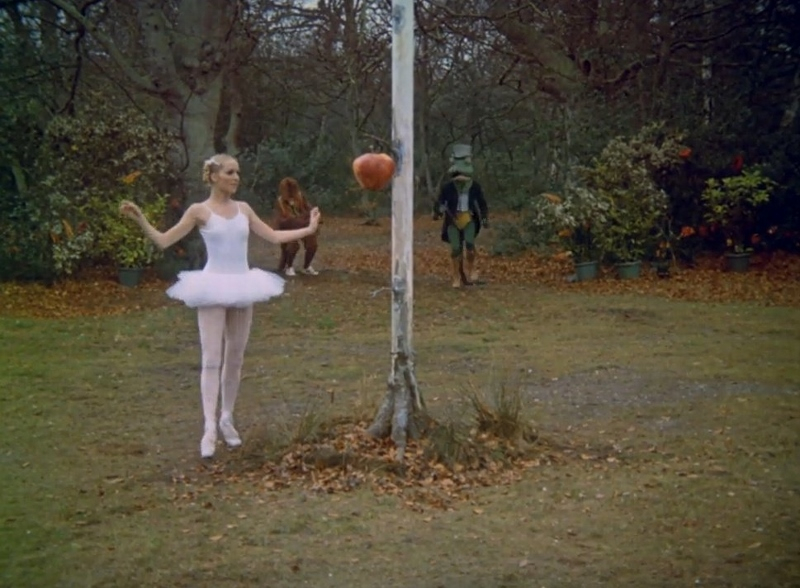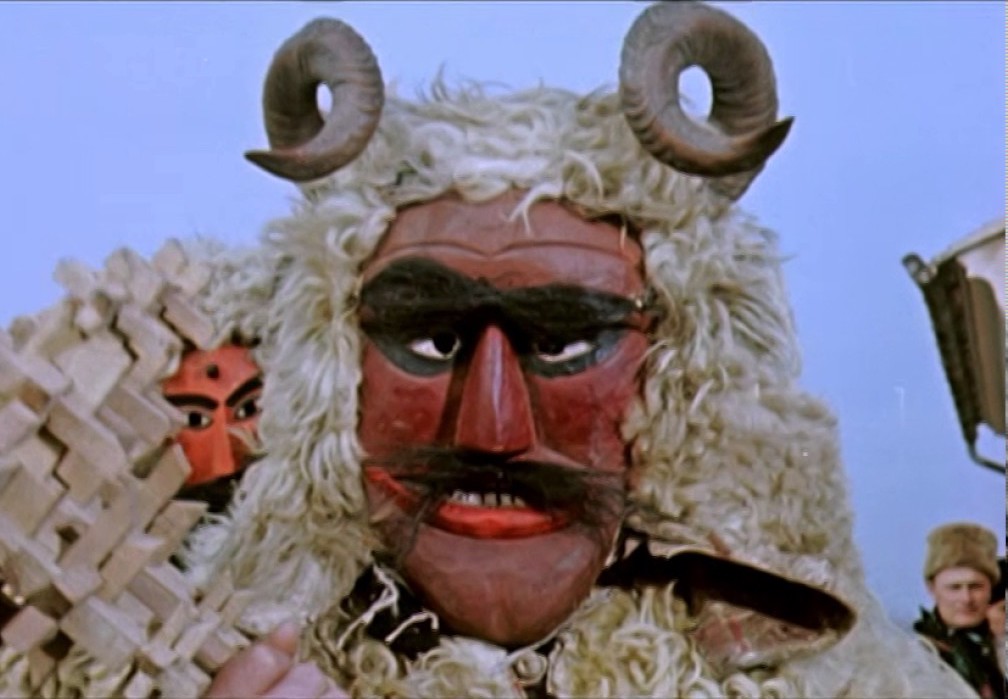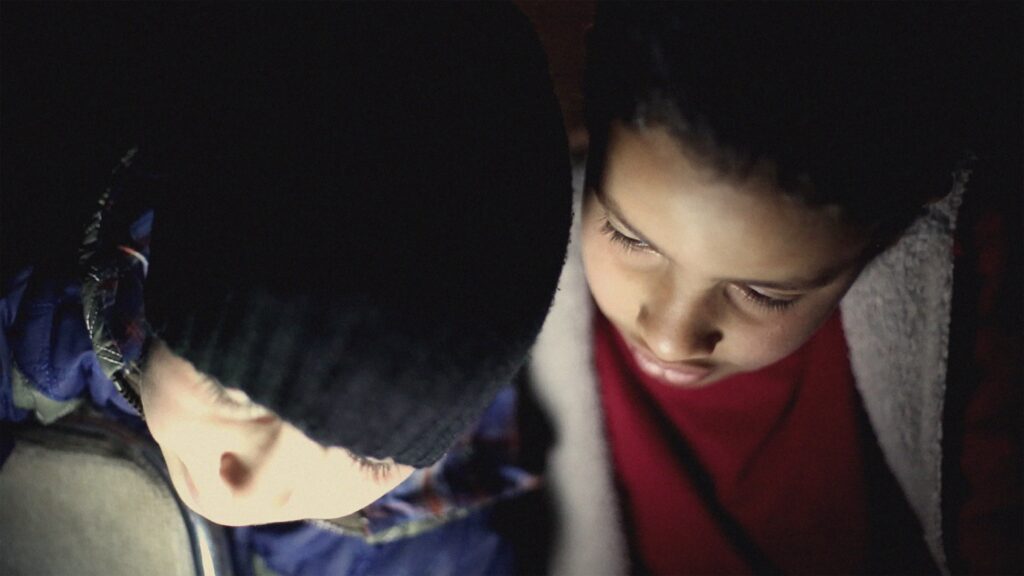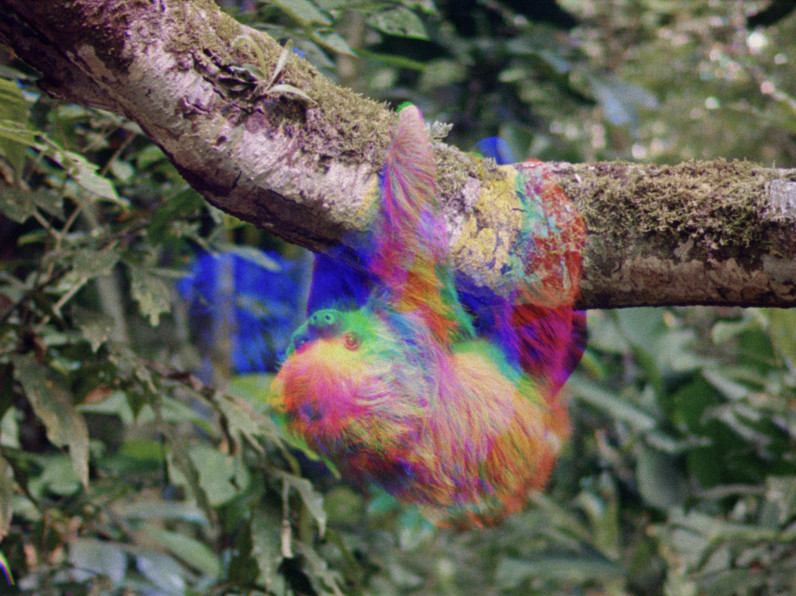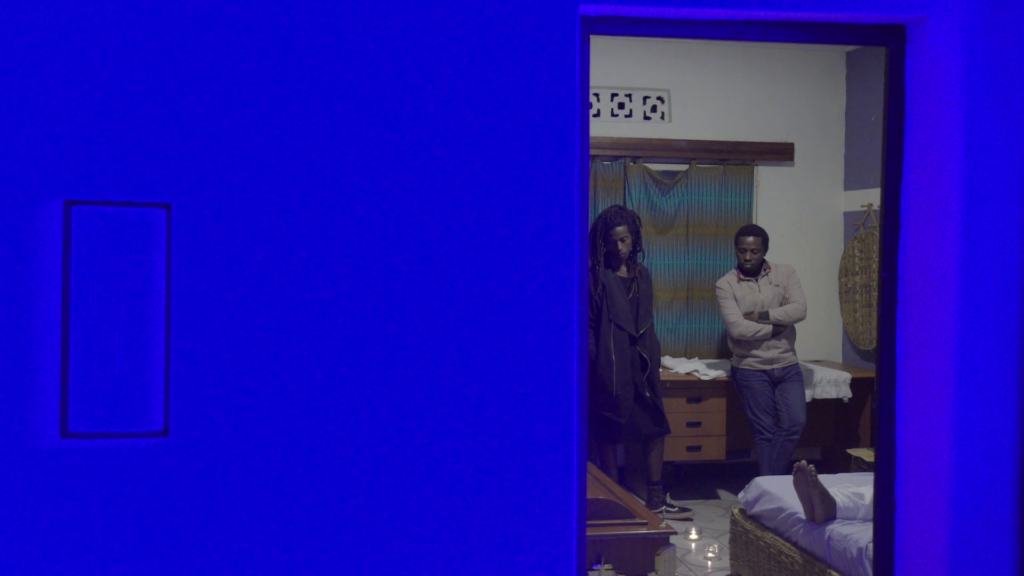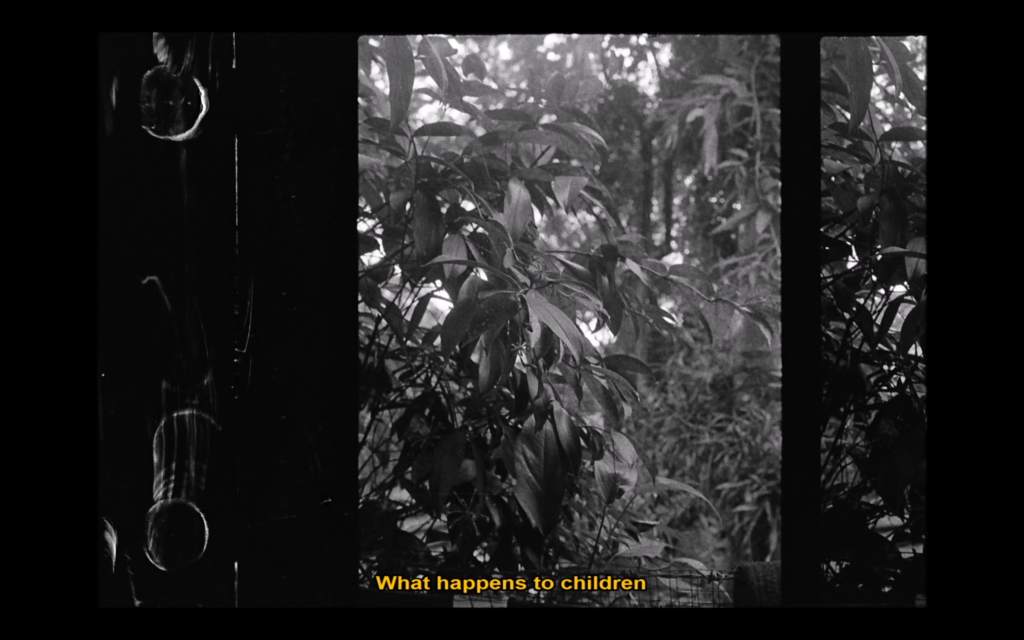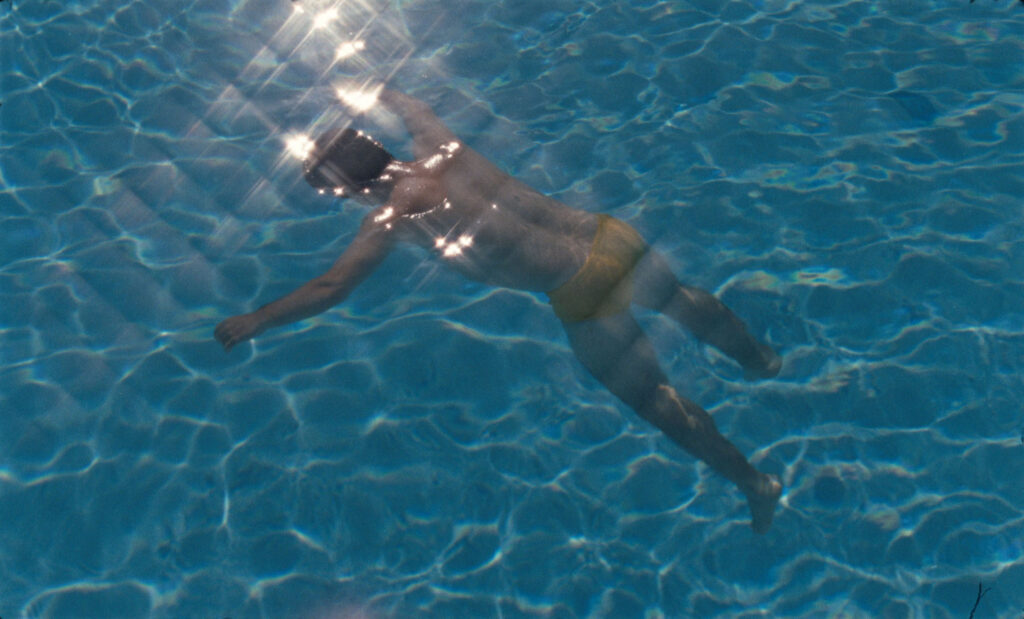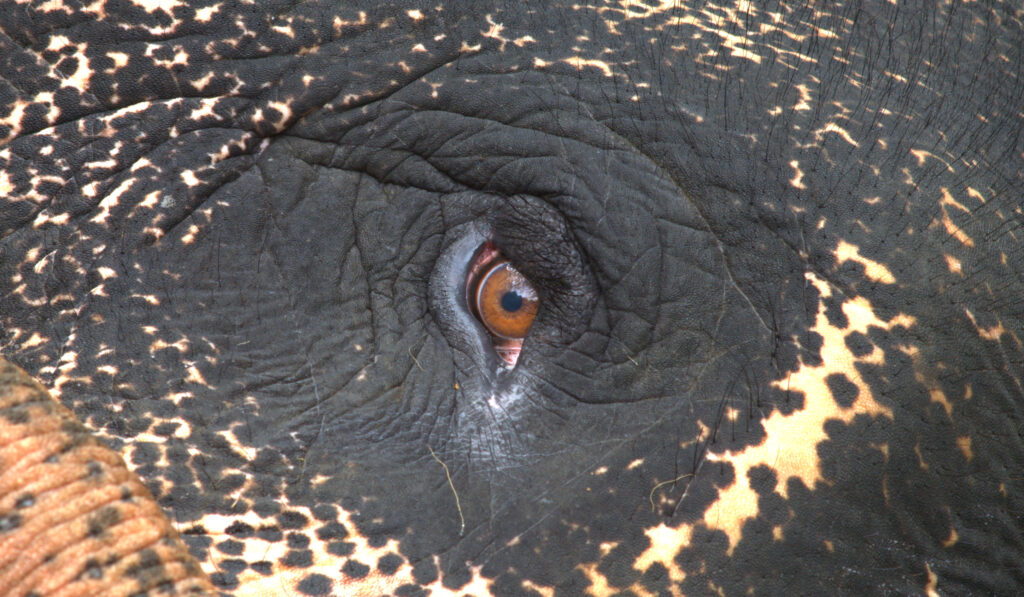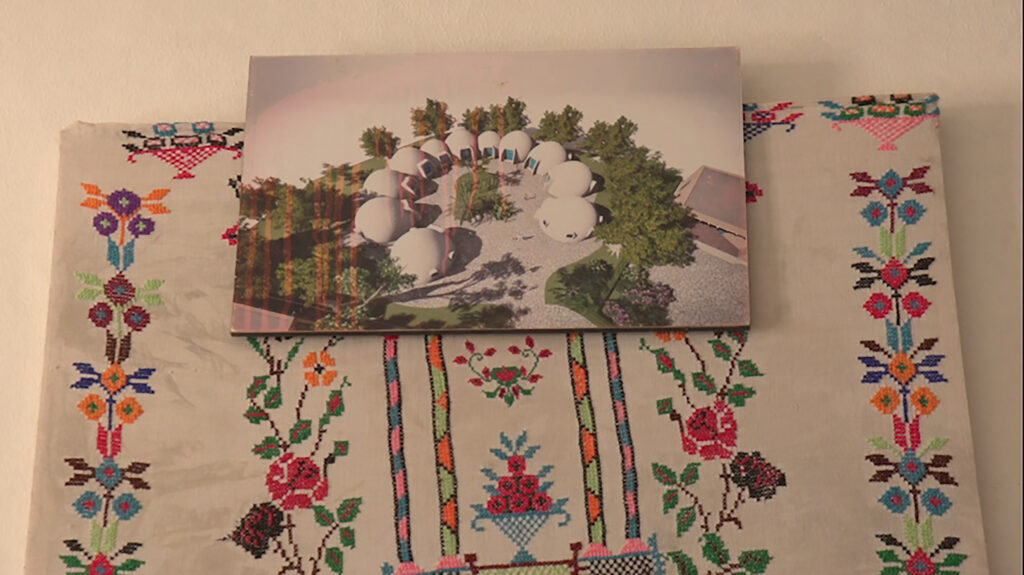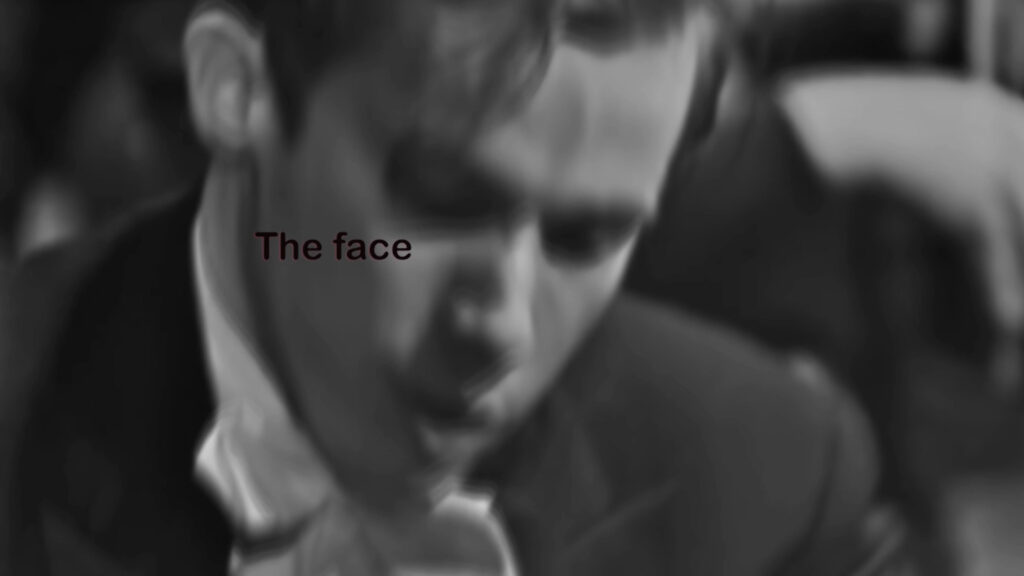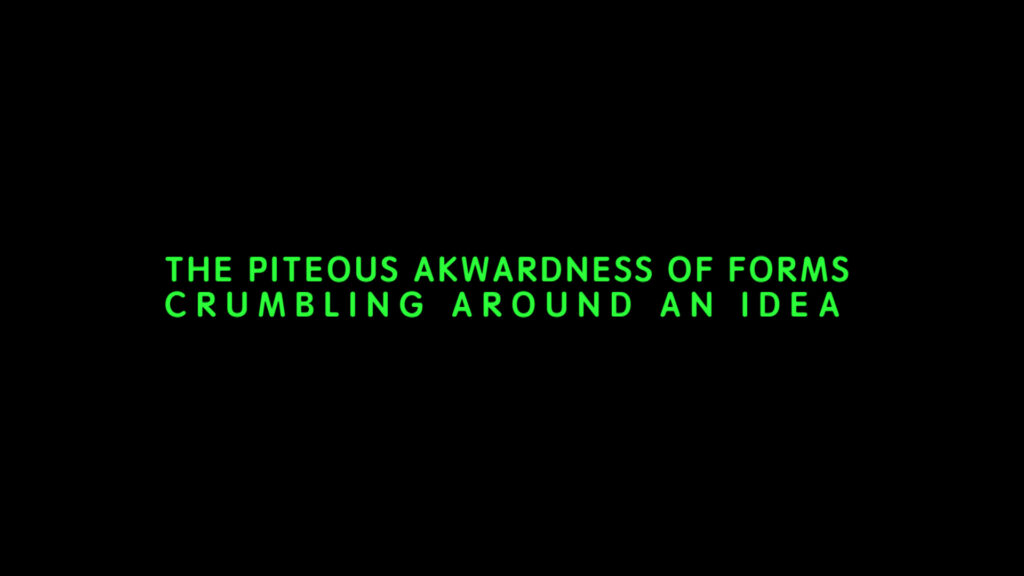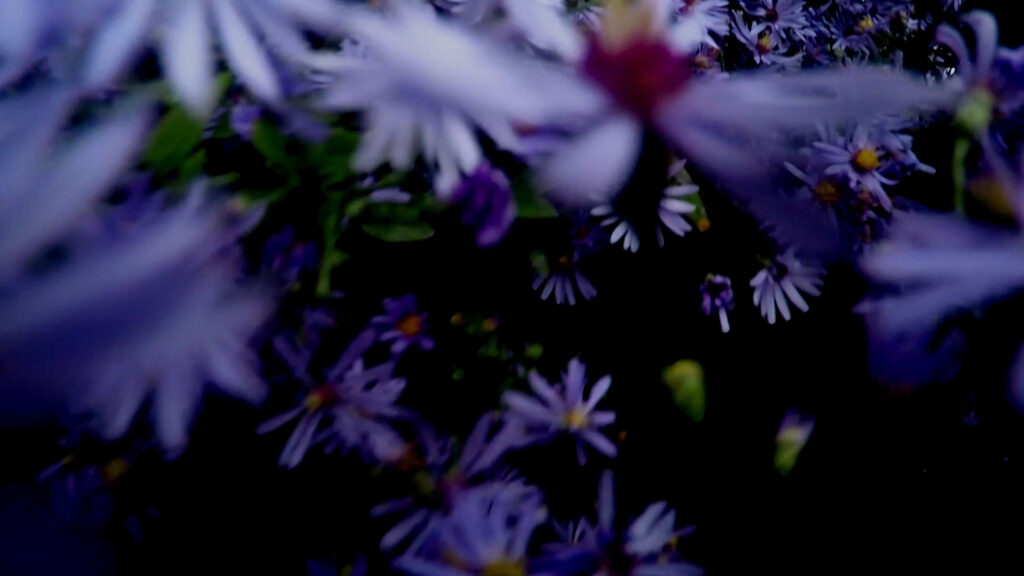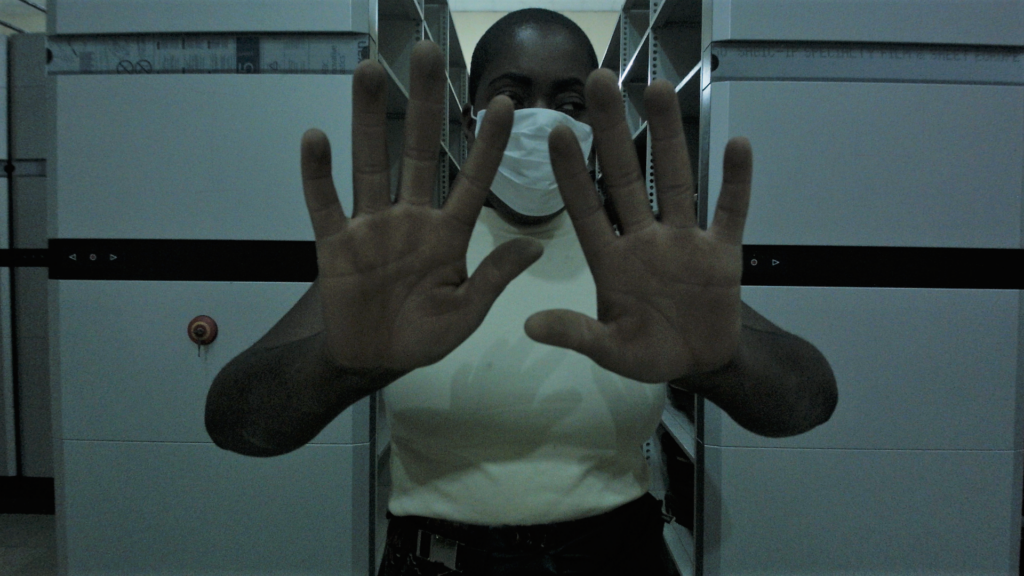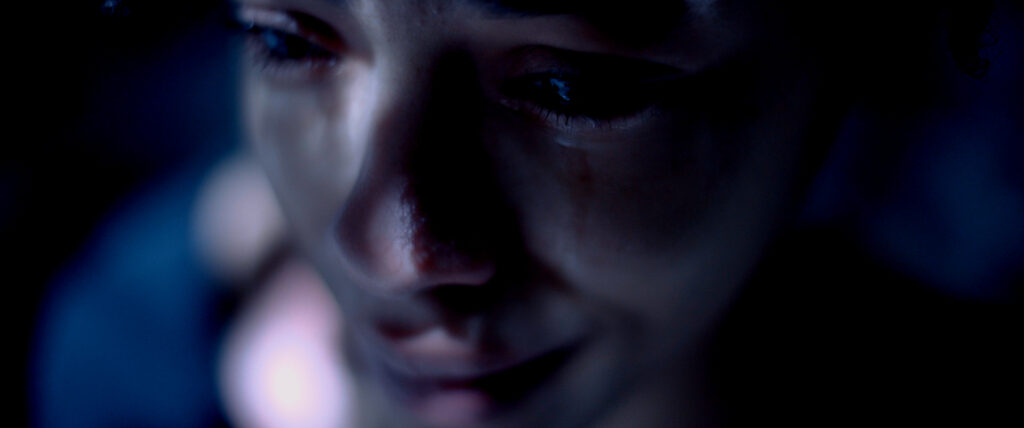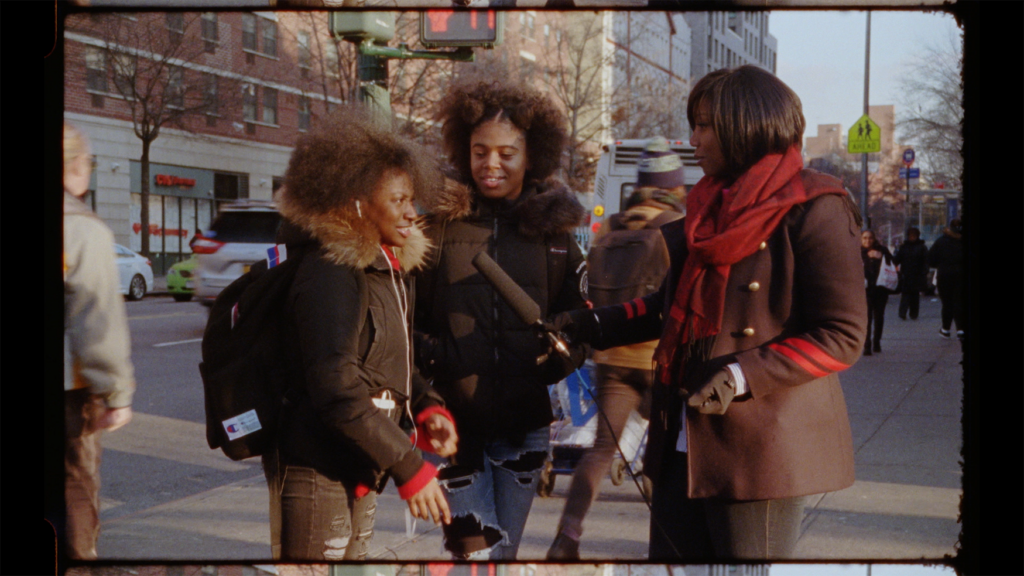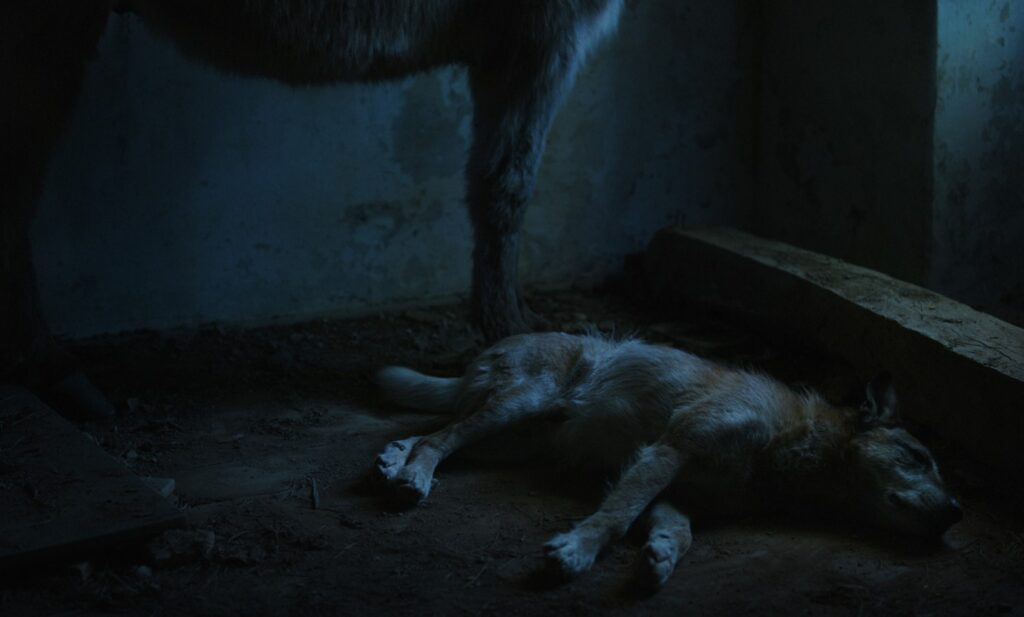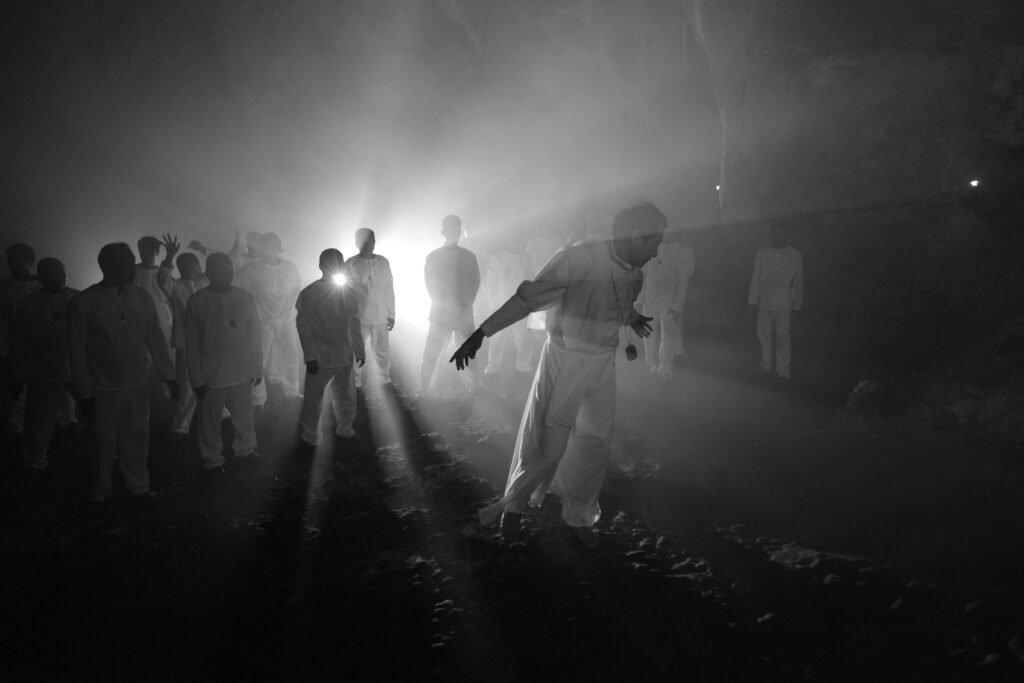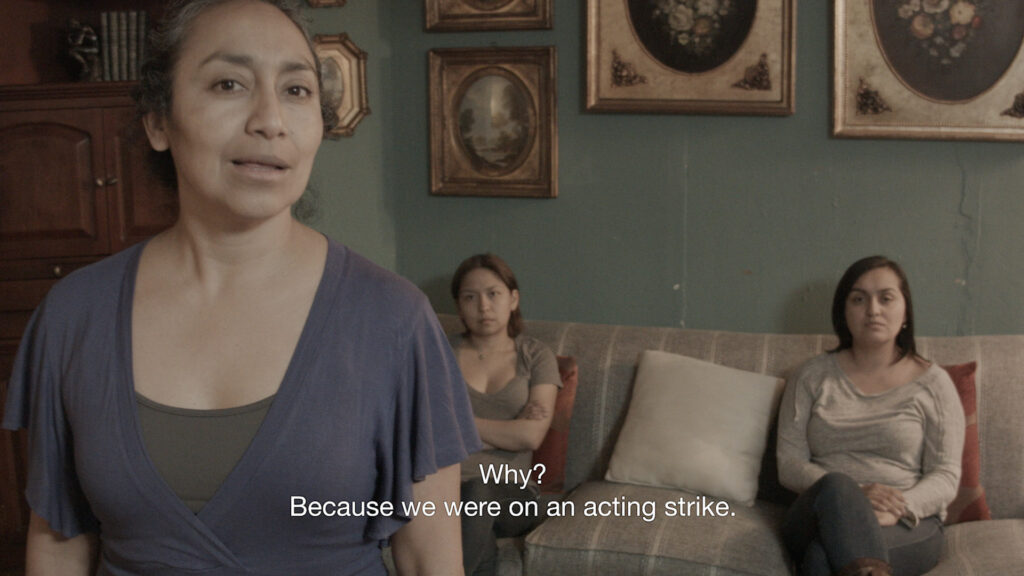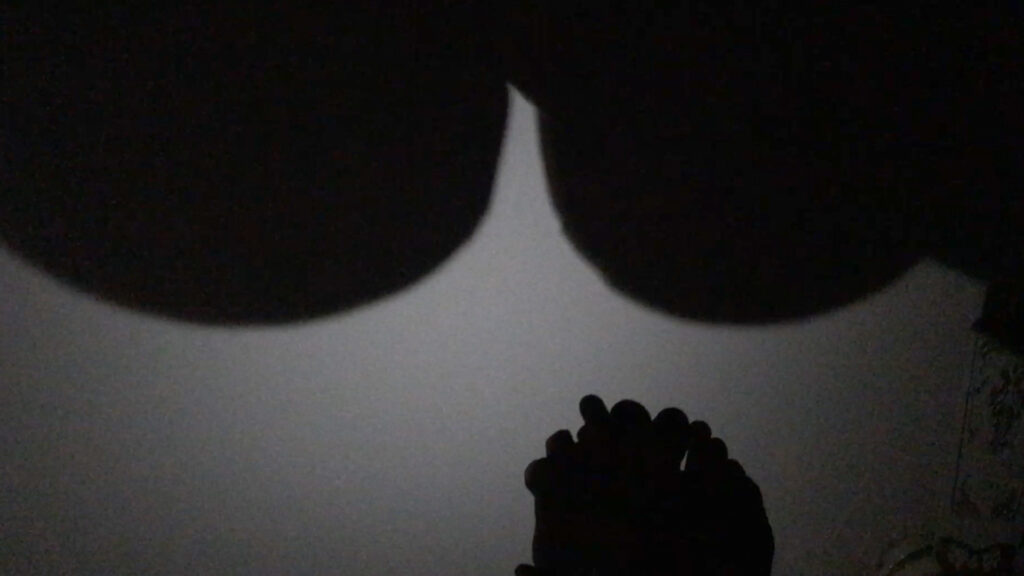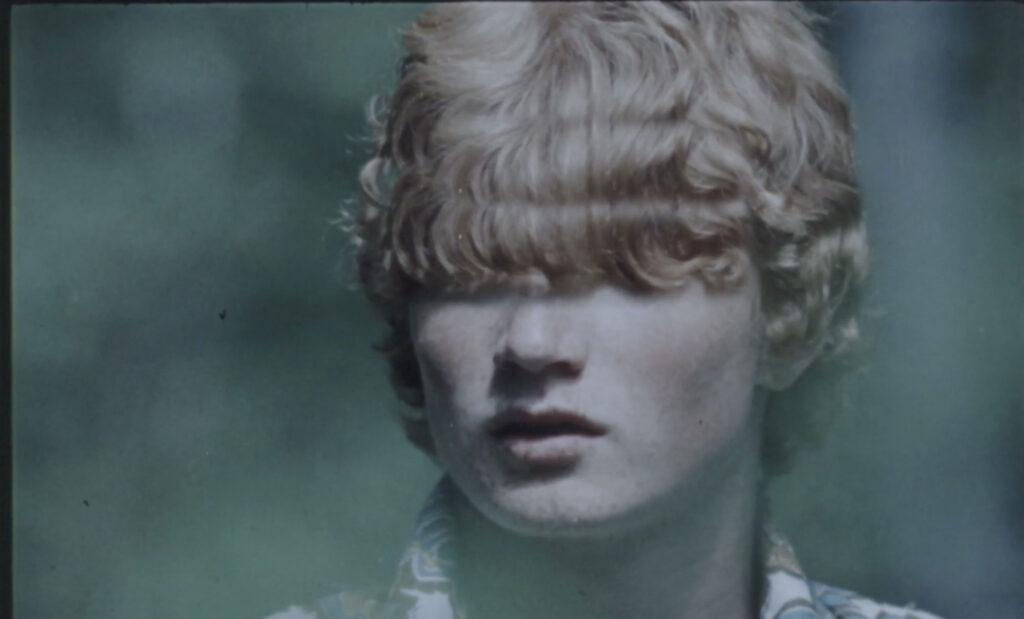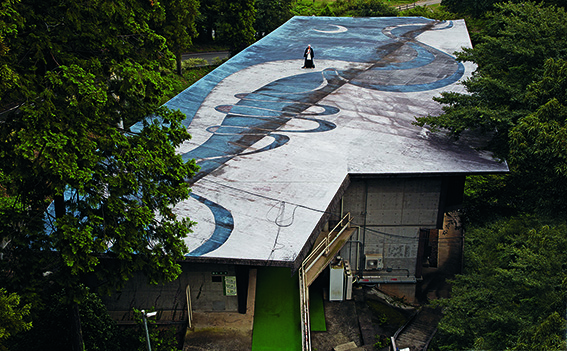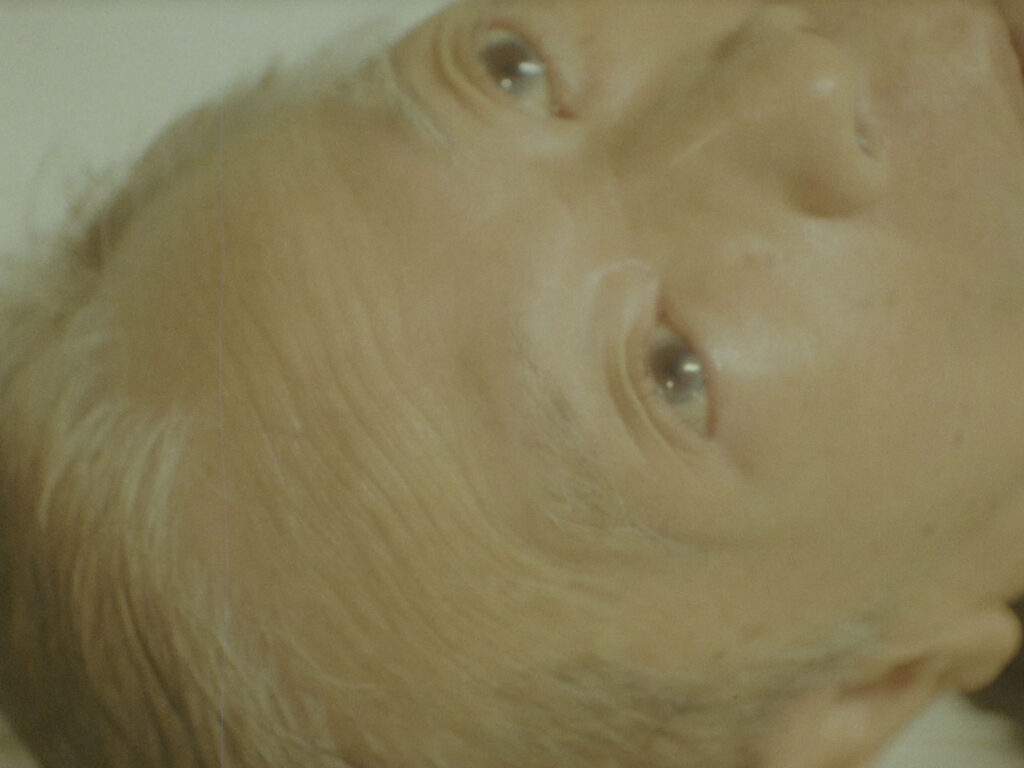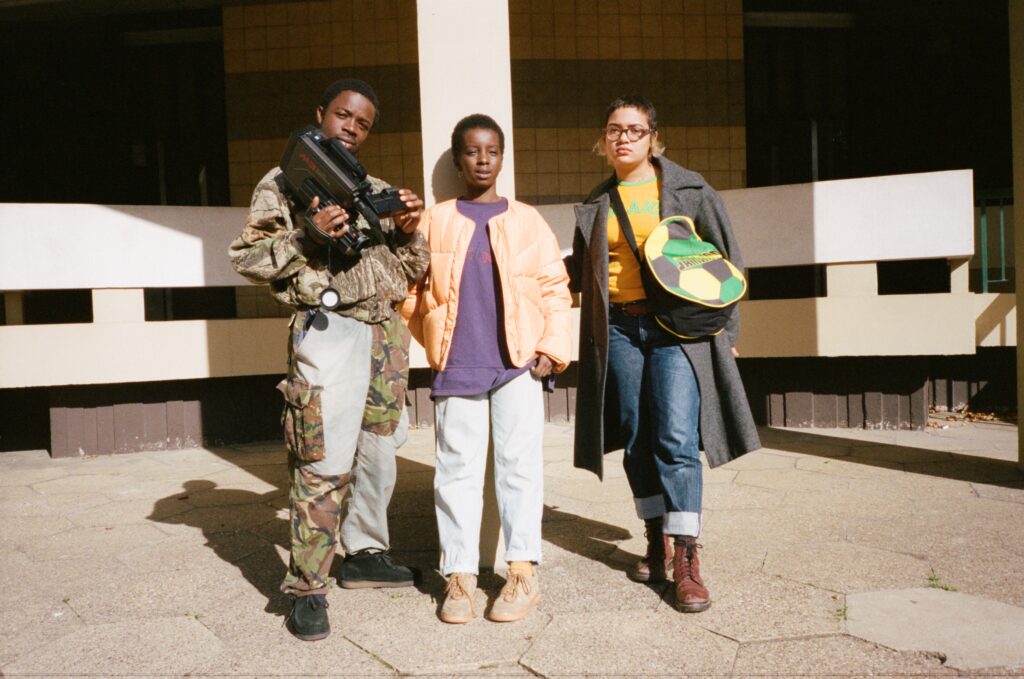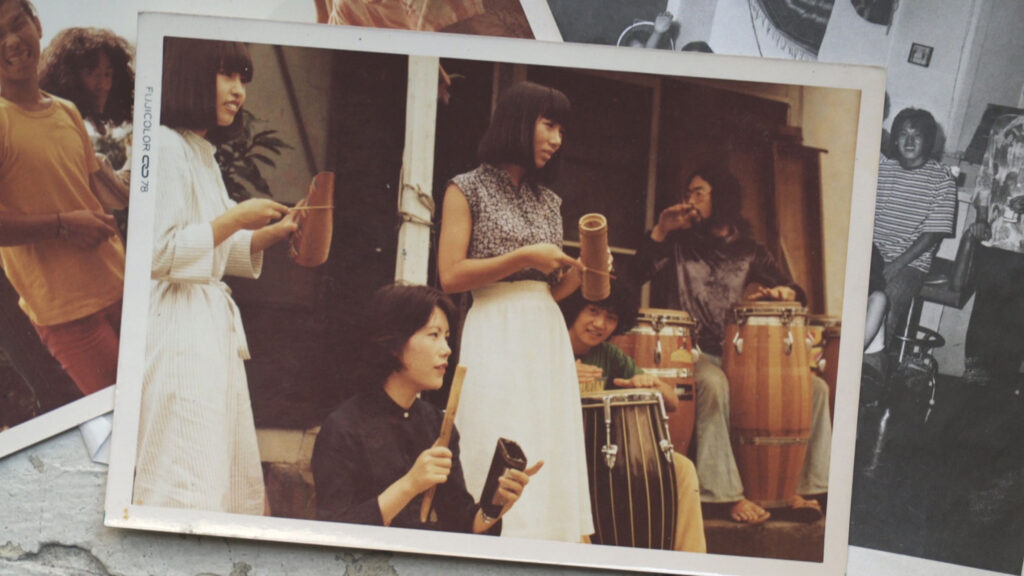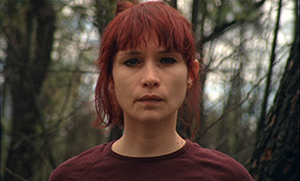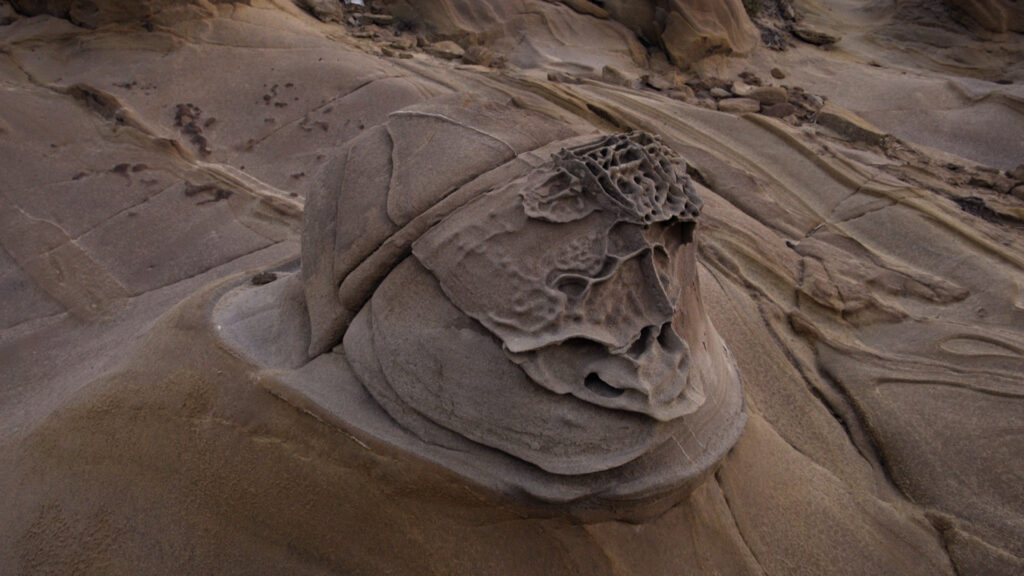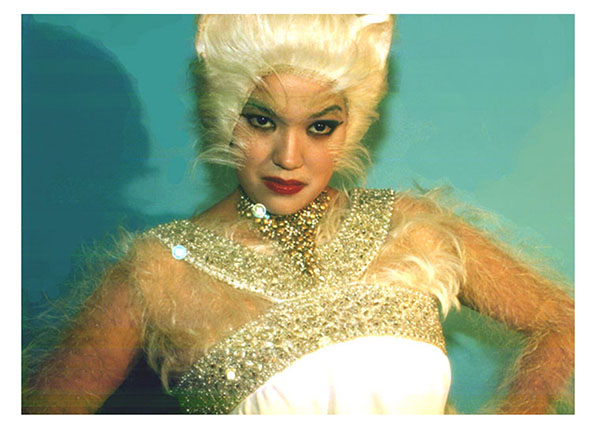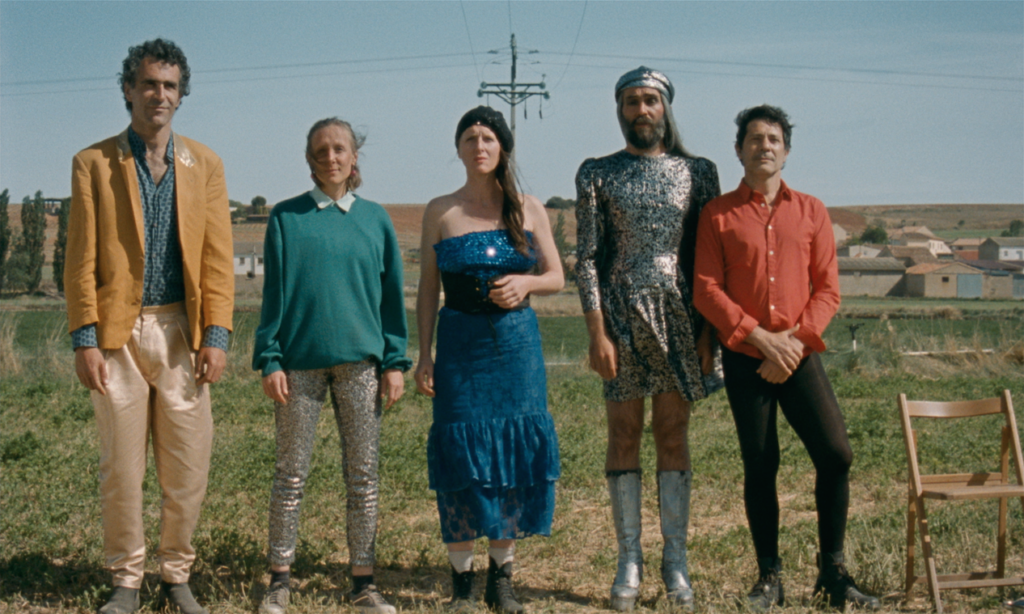‘Double Ghosts’ is a multi-part exhibition which traverses the Pacific drawing on historical fragments, traces and ghosts from the coasts of Chile to a mountain cemetery in Taiwan. Exploring the status and potential of unrealised and fragmented histories, the exhibition draws together 35mm film, sound recordings, script fragments, photography and archival material filmed and gathered in Chile, France and Taiwan.
‘Double Ghosts’ was commissioned by Berwick Film & Media Arts Festival in partnership with Berwick Visual Arts
Secondary Schools are invited to bring students to watch a dedicated screening of short films from our Fantastika series, introduced by BFMAF Associate Programmer Herb Shellenberger.
Tim Alsiofi’s unflinching document of people sheltering in a city under siege reaffirms the importance of transparency and immediacy in documenting crucially important scenes of unfolding history through moving images.
Ben Rivers’ magnificent film of a sloth doesn’t encourage lazy viewing. Rather, it’s an active, engaging and engrossing experience. Time becomes suspended as each breath, every movement becomes a theatrical drama unfolding before our eyes. Perhaps implicitly poking fun at the term ‘slow cinema’, Rivers instead gives us an exquisite example of ‘sloth cinema’.
Aura Satz’s Preemptive Listening project focuses on sonic obedience and disobedience through the trope of the siren. The Fork in the Road comprises trumpet improvisor Mazen Kerbaj’s composition of a new siren sound using circular breathing, and actor/activist Khalid Abdalla speaking on the siren as the emblematic sound of resistance, oppression and lost futures during the Arab Spring. Shot on 16mm, the film is literally driven by its soundtrack, as the voice becomes a beacon, activating emergency rotating lights.
Aura Satz presents the UK premiere of her film Preemptive Listening (Part 1: The Fork in the Road) and discusses her wider research on sonic obedience and disobedience through the trope of the siren. Her project proposes a speculative re-imagining of emergency signals—it posits the siren’s loud glissando wail as a conditioned and learned signal, one that can potentially be productively rewired.
Holy Days pictures a strange ballet of both human and non-human animals in a rural landscape. The film opens with a man digging his own grave, only to soon find solace in a mysterious companion.
Films by Deborah Stratman, Patrick Staff, Philbert Aimé Mbabazi Sharangabo, Lesley-Anne Cao, Chema García Ibarra & Ion de Sosa
‘Lazy Girl’ is an emblem of refusal. Like Hammer and Deren she moves to her own rhythm, turning resistance into art. So did Eric, a singular figure whose “proto-practice” was poetry—but he ran out of time. Marx said all politics reduces itself to the politics of time; too bad this leisurely splash in Montánchez is hardly a refusal of capitalism’s tempo but let’s kill time before it kills us.
After a devastating earthquake, Nga, an old elephant and probably the last of its species, and Sanra his mahout are about to embark on a journey to find the mythical elephant’s graveyard. A group of poachers follow them closely, while a journey of discovery and mourning starts. The viewer becomes the protagonist on a sonic trip into the cemetery and beyond.
Q&A with filmmaker Carlos Casas
UK premiere of Cemetery presented jointly by BFMAF and Tate Modern
The episodically connected lives of four college friends unfold throughout the incipient martial law years, as they struggle to define their sexual and professional desires and how best to attain them. An observational drama that does not shy away from topics such as abortion, prostitution, patriarchy, homosexuality, military violence and the repressive social conditioning of collective imaginaries, this understated feminist inquiry into the possibilities of sustaining queer kinships stands out as a singular achievement of woman-centred Philippine cinema. — Letitia Calin
Marwa Arsanios’ Who Is Afraid of Ideology? focuses on ecology, feminism, social organization, nation-building, war and economic struggle. In its formal construction, the film lays bare some of the documentary form’s devices to create a record of shared living and organising— voiced by those within, and in proximity to, the communities documented. Arsanios presents us with two radical women’s movements and their means of survival as a possible solution to the degradation of the commons and the destruction of the earth.
Q&A with Marwa Arsanios
Films by Steve Reinke, Onyeka Igwe, Rajee Samarasinghe and Ja’Tovia Gary
From Harlem to Giverny, patrilineal tales to Artaud, nature will give way to febrile artifice. What dizzying force is this—throwing us between opposites: deafening silence vs. slide-projector clicks; glitch-y celluloid vs. HD; projected futures pressed up against the archive? But there’s calm around the corner—a reprieve from the chaos of subjection. “Can I live?”, one voice enquires, rhetorically. Consider how the subtext to our fervid biopolitical project.
Q&A with filmmakers Steve Reinke and Onyeka Igwe
After living wild for a week, Astrid’s 13-year-old son Phillip returns home without saying a word. Only gradually does everyday life get back on track. Astrid now finds herself confronted with questions that provide a whole new perspective on her middle-class existence and her career in Berlin’s cultural sector. At home, it becomes more and more difficult for this single mother to accept that her son is leading his own life. The family may be disintegrating, but only to form itself anew.
Supported by Goethe-Institut London
Animistic Apparatus presents an overnight screening of Lav Diaz’s epic film—projected outdoors continuously and ending around sunrise—as a nocturnal offering to the spirits of place and the ecology of visible and invisible beings of Berwick-upon-Tweed.
This programme brings together Marwa Arsanios’ new work Amateurs, Stars and Extras or the labor of love with her earlier, much-lauded film Have You Ever Killed a Bear or Becoming Jamila.
Q&A with filmmaker Marwa Arsanios
Films by Dani ReStack & Sheilah ReStack, Cooper Battersby & Emily Vey Duke, Adam Khalil, Zack Khalil & Jackson Polys, Anya Tsyrlina & Sid Iandovka and Heidrun Holzfeind
History is what’s happening. It’s constantly unfurling never static and always in flux. Rather than being resigned to it, it’s incumbent upon us to shape and mould it into the gooey, slimy substance that we want our world to resemble. The time is now, the place is everywhere, all at once…
Q&A with filmmakers Emily Vey Duke, Anya Tsyrlina & Sid Iandovka and Heidrun Holzfeind
Films by Miko Revereza, Ayo Akingbade, Daisuke Kosugi and Jenny Brady
Ricocheting from point to point, this might lead to discovering new people, ideas and forms of communication, breeching familiar spaces, close and far. Or is it perhaps the eternal return, reconnecting us with family, compatriots or community?
Q&A with filmmakers Miko Revereza, Ayo Akingbade, Daisuke Kosugi and Jenny Brady
The Halt is set in a phantasmagoric dystopian future where madmen control Manila after massive volcanic eruptions have plunged Southeast Asia into darkness. Berlin, Venice and Locarno award-winning director Lav Diaz’s latest film is a potent sci-fi epic. Holding a mirror to present-day despots and invasive surveillance, it concentrates power in the hands of a solitary young woman. Spinning a tale that urges recovery from collective cultural amnesia, The Halt is an immersive and truly one-of-a-kind experience.
Introduction by filmmaker Lav Diaz
There will be a 15 minute interval during the screening
Films by Leonor Noivo and Elise Florenty & Marcel Türkowsky
No human is an island. Two short films of grand vision—and great difference—follow their lone protagonists as they negotiate between inner and outer worlds. From the barren but hauntingly militaristic island of Lemnos to a verdant Portuguese forest, both humans rearrange fugitive blocks of cunning and experience to find their point of view.
Q&A with filmmakers Leonor Noivo, Elise Florenty and Marcel Türkowsky
Fairytales and fables form the fulcrum of these short films. Zlatko Bourek’s psychedelic-era animation The Cat is a day-glo adaptation of Aesop’s ‘Venus and the Cat’, in which a man falls in love with a cat-turned-woman.
The Little Girl Who Sold the Sun follows Sili, a girl traversing Dakar’s many obstacles with her crutches. After starting to work as a newspaper vendor, she quickly runs afoul of territorial boys who see her as a competitor. Djibril Diop Mambéty’s final film is handled with gentle lightness and grace, providing incontrovertible evidence of his place not only as a master of African cinema, but as a pivotal figure in the history of cinema. — Herb Shellenberger
The Great Indomitable Circus prepares the premiere of their new performance ‘Rights of Man’. Setting up tent in a sleepy northern Spanish town, they devise changes in the style of their show. But their days become mired in meandering vaudevillian arguments, analysing the grandeur of the landscape, the simplicity of the native architecture or the quality of each other’s performances. After much back-and-forth, they end up sticking to their original script.
Introduction by filmmaker Juan Rodrigañez
The film will be preceded by the 2019 Berwick New Cinema Competition award presentation


